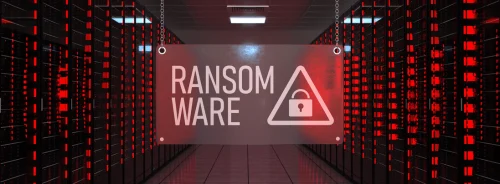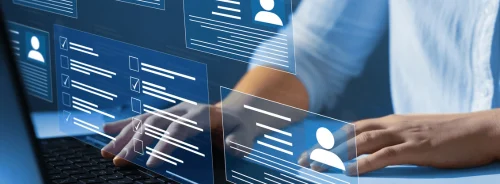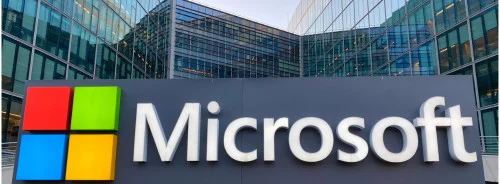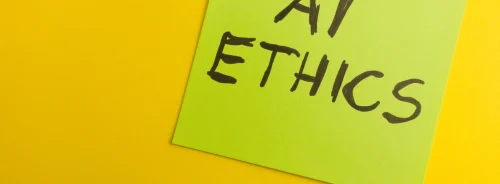HealthManagement, Volume 5 / Issue 5 / 2010
HITM Editorial Team
Many patients seem resigned to the fact that hospital stays are to be ‘endured.’ Is it possible to make such stays enjoyable, at least to an extent? Some EU hospitals have implemented a Quality Policy aimed at achieving just such a goal. One of these, portrayed below, won an Award from the French National Assembly. Its secret is to combine the necessary functionalities of data entry in the increasingly familiar patient bedside terminal, with patient leisure and entertainment; one might well take the liberty of calling this the emerging era of ‘meditainment’.
Centre Hospitalier de Douai (CH Douai) is one of northern France’s major hospitals, both in terms of the number of patients seen and in the diversity of services and specialties offered.
Originally founded in 1628, CH Douai was recently completely rebuilt and modernised. The new facility was inaugurated on September 26, 2008, replacing the historic 380-year-old Hôtel- Dieu with a comprehensive, world-class facility.
The new 65,000 m² complex has 640 beds, 391 single patient rooms, and a total of 450 multimedia terminals for the use of both patients and hospital staff. The Emergency facilities were quadrupled in area, a new 1.5 Tesla MRI was added, operating and hemodialysis facilities were modernised and expanded, and patient care and reception areas were upgraded and optimised.
Motivation
CH Douai’s commitment to the quality of care is embodied in its Quality Policy, and focused on the care, safety, rights, and well-being of patients. The hospital actually strives to exceed the guidelines and regulatory requirements of the Regional Hospital Agency (l'Agence Régionale d'Hospitalisation) and the French Health Authority (Haute Autorité de Santé). Among the eleven General Principals in the CH Douai’s Patient Rights Charter, they include a commitment to quality care, access to information, and respect for the patient.
As part of the modernisation, CH Douai decided that one way to further the goals for the quality of patient care was by using electronic bedside terminals to make communication, patient education, and recordkeeping simpler and more efficient.
For recordkeeping, caregivers can access and update patient files directly from the bedside in real time, including filling prescriptions. Having all patient records, test results, histories, prescriptions, and protocols available improves the coordination and continuity of care for all stakeholders. Decisions about patient treatment become more patient-centered, minimizing the risk of redundant or contradictory treatments.
For communication and education, CH Douai wanted to be able to use the terminal as a primary conduit for caregiver-patient communications. Patient education about post-discharge treatment procedures and plans is a key element in the continuity of care. Patients can also use the terminal to access news and information about in-hospital events and live educational details. In addition, patients can use the terminal to order meals and other services, as well as purchase optional amenities.
Finally, CH Douai wanted to make its patients’ stays more enjoyable, less frightening, tedious or frustrating. It envisioned a well-cared-for, well-informed patient having the freedom to surf the Internet, chat, web-conference, play games, watch movies, and even pause live TV (especially helpful when doctors or nurses visits might come during a programme).
The Solution
Telecom Services is a French systems integrator focused on the healthcare sector, particularly communications and entertainment services. It delivers phone, Internet, email, games, radio, television and other multimedia services to hospitals, over their fibre, Ethernet, or coaxial cable networks.
Telecom Services implemented and installed the end-to-end bedside patient information system with touch-screen terminals for CH Douai. The screens can be used by hospital staff to access patient files using the Apicrypt secure messaging system, developed by the non-profit APICEM (L'association pour la Promotion de l'informatique et de la Communication en Médecine). This access is an important contributor to CH Douai’s “Superior” rating by the French Health Authority for Patient Recordkeeping (Tenue du Dossier Patient -- TDP).
The patient education and entertainment capabilities of the system perform double duty; they contribute to the comfort and ongoing quality care for the patient, but patient fees for entertainment services also help defray the cost of the bedside terminal system. For this reason, special care was taken in designing compelling television services.
“Our objective was to bring a contemporary solution to the hospital that allows in-patients not just to be entertained and informed but to be able to do that on their own terms and convenient time,” says Pascal Wagener, CEO of Telecom Services. “We recognise that more and more hospitals in France wish to offer not just broadcast TV to their patients, but also a range of personal entertainment services such as video-on-demand and TV time-shifting.”
To access such services, Telecom Services turned to GoBackTV, a vendor of cutting-edge solutions for television such as stream-based personal-TV applications, including IPTV over cable, middleware, switched broadcast and network DVR.
In addition to Internet access, a games package, and Voice over IP handsets, Telecom Services implemented the RetroVue® Personal TV solution from GoBackTV in the bedside terminals.
RetroVue allows hospital patients to rewind broadcast video, to start over a programme whose beginning they missed, or to pause live TV during medical procedures and resume when the doctor or nurse has left. RetroVue also delivers Video on Demand for movies and educational content, and provides a familiar television-style navigation interface for television, movies, information, and service menus.
Industry Recognition
This state-of-the-art solution and the CH Douai were recently with two major European awards.
The first award, sponsored by the French Assemblée Nationale (National Assembly) and the magazine Acteurs Publics (Public Players), is the prestigious 2010 Victoires de l’Innovation Hospitalières (Victory in Hospital Innovation). The Victoires de la Modernisation de l’État 2010 (Victories of the Modernisation of the State) recognizes those working to ensure a quality public service in hospitals.
For the second award, Le Trophée de l’Innovation Territoriales 2010 – TIC Santé Sociale (Territorial Innovation Trophy for ICT and Social Health) – CH Douai bested six other finalists in the ICT/Healthcare category.
“GoBackTV’s RetroVue allows us to offer cutting-edge entertainment services to our patients, which enhances the quality of their visits,” said Edmond Mackowiak, Director of the Central Hospital Douai. "We at Douai are all happy and proud of this innovation and modernisation prize. We installed a Terminal MultiMedia, which is a new technology, for the patients and hospital staff, with access to various TV, Internet and phone services. As an example, a patient can now share pictures of a new baby instantaneously, from the maternity ward, for family outside the hospital to see. It also allows doctors to access patient files remotely, from the patient’s room."
HITM Analysis
The concept of improving "patient experience" via bedside entertainment and communication systems has acquired considerable momentum in recent years. Britain was one of the first countries to make formal recommendations on the topic. The NHS Plan 2000 explicitly urged hospitals to provide radio, TV and telephone services from each bedside.However, 10 years down the line, the British experience has been unsatisfactory - to both private sector service providers (most of whom have yet to make profits) or to patients; the Patients Association has billed the systems as "an unfair tax on the sick". Part of the problem in the UK was that the entertainment component was priced at a flat rate. Patients paid for an entire movie on TV, even if they watched it for just a few minutes. The possibility of viewing a movie on demand (starting and stopping at will, and paying by actual use) simply did not exist. Last but not least, the phone costs were often 'outrageous' - as described in an official investigation by regulator OFCOM in 2006.
Such shortcomings may become a thing of the past due to the innovative design of the system at CH Douai, and the possibility of differential pricing and cross-subsidising of high-end services (time-shifted TV, Internet, gaming) against necessities such as the telephone.





